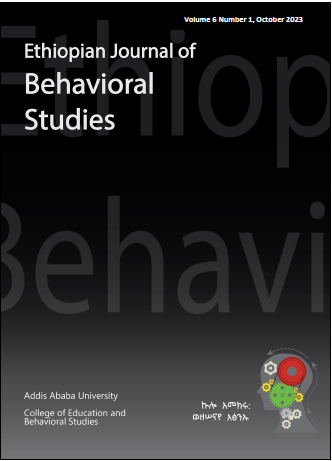School Accountability for Learning Outcomes: A Case Study of Secondary Schools in Ethiopia
Keywords:
accountability relationship; learning outcomes; Delegation; Finance; Information; MotivationAbstract
This qualitative multiple-case study aimed to develop an understanding of school accountability for learning outcomes in Ethiopian secondary schools. Data were collected from 36 key school stakeholders, including teachers, directors, education experts, parents, and students through interviews and focus group discussions. Documentary analysis and observations were also used as data sources. Two schools, one high-performing and another low-performing, were chosen for this purpose. Pritchett’s theoretical framework was used to guide the research. The findings of the study revealed that the four design elements (delegation, finance, information, and motivation) in the relationship of accountability were incoherent with learning outcomes in the low-performing school compared to the high-performing school. Academic activity is overlooked, and numerous extracurricular activities were witnessed in the low-performing school. Besides, both schools were facing serious financial difficulties. Enrollment, pass/fail, dropout, discipline, and construction were data types frequently used in low-performing school, whereas process data and student performance data were often used in high-performing school. Participants in the low-performing school believe that nothing will happen to them if their students fail. In contrast, participants in the high-performing school believe that they can be held accountable for student performance. Parents in low-performing school come to school only when their children cause disciplinary problems or when they are absent, and they are unaware of the importance of holding the school accountable for their children's performance. In high-performing school, however, parents and teachers collaborate and share responsibility for improving student performance. Hence, the low-performing school focused on schooling, while the high-performing school-focused on learning outcomes. Implications of the study include ensuring appropriate school systems that are coherent regarding learning outcomes and supporting front-line providers. In addition, further research on this topic is suggested in the Ethiopian education system as a whole.
Downloads
Published
How to Cite
Issue
Section
License
Copyright (c) 2023 Ordofa Begna , Asgedom Amare

This work is licensed under a Creative Commons Attribution 4.0 International License.


